Benchmark sorting of aluminium alloys
Numerous innovations, for example the novel multi-spot analysis for ideal material detection, form part of the Plasmax / LIBS. (c) Steinert
Bar ohne Namen
Entschlossen verweigert sich Savage, der Bar einen Namen zu geben. Stattdessen sind drei klassische Design-Symbole das Logo der Trinkstätte in Dalston: ein gelbes Quadrat, ein rotes Viereck, ein blauer Kreis. Am meisten wurmt den sympathischen Franzosen dabei, dass es kein Gelbes-Dreieck-Emoji gibt. Das erschwert auf komische Weise die Kommunikation. Der Instagram Account lautet: a_bar_with_shapes-for_a_name und anderenorts tauchen die Begriffe ‘Savage Bar’ oder eben ‚Bauhaus Bar‘ auf.
Für den BCB bringt Savage nun sein Barkonzept mit und mixt für uns mit Unterstützung von Russian Standard Vodka an der perfekten Bar dazu.
If you ask experts in the recycling sector about the direction in which they see metal recycling heading, they will often come back with: sorting aluminium alloys. Steinert responded to this trend back in 2016 with the line sorting system (LSS) and is now launching the second LIBS sorting system. Designed specifically to sort ready-to-melt 5xxx and 6xxx aluminium alloys, it is setting new standards in efficiency and precision. The newly developed Steinert Plasmax / LIBS promises to sort three products in one run, undertake a novel multi-spot analysis and deliver high purity levels.
Replete with numerous innovations, the Plasmax / LIBS is the solution for high-purity separation of aluminium series and can handle large volumes. Delivering purity levels in excess of 95%, the new LIBS system achieves high quality levels, enabling the sorted product to be fed straight back into the production process. The compact design also makes the sorting system very easy to integrate in existing systems.
What is LIBS technology?
LIBS stands for Laser-Induced-Breakdown-Spectroscopy – a technology used to analyse materials down to their elemental composition. A high-energy laser beam is directed at the aluminium, evaporates material and produces a plasma heated to several thousand degrees, which then disintegrates into light emissions. Spectral analysis can be used to determine its elemental composition and aluminium can be separated with very high levels of precision.
Volume sorting with maximum precision
With a processing capacity of 3-6 t/h and three material discharges at the same time, the Plasmax / LIBS makes what is probably the most efficient processing of high-grade aluminium scrap possible and therefore meets all current industry standards.
Karl Hoffmann, Global Sales Director Metal Recycling at Steinert, explains: “Precise sorting of aluminium with the Plasmax / LIBS delivers quality levels that produce an excellent basis for the increase in demand for recycled aluminium. Given the need to decarbonize the automotive industry and its supply chains, greater use of high-grade recycled materials is essential. Through the Steinert Plasmax / LIBS, we are able to present a technology that we have developed in house and that is once again setting new standards in the circular aluminium economy.”
The new Plasmax / LIBS enables recycling companies to efficiently separate aluminium scrap into three different sorting products. (c) Steinert
A new approach to sorting aluminium
The material starts to be processed as soon as it is placed on the new feed system. A specially developed multi-stage feeder ensures that the conveyor belt is covered perfectly.
Next up is 3D detection and an ultra-precise in-flight detection: in other words, detection starts immediately after the material has left the belt. With the aid of kinetic energy, the material flies in a stable parabola through the laser unit. The novel multi-spot analysis uses several laser measurement points simultaneously, which accurately strike the material at right angles, to guarantee optimum detection.
The plasma produced when the laser pulse encounters the aluminium is analysed using AI and, a moment later, separated into one of the three discharges by a compressed air pressure pulse.
Customers who have had the opportunity to test the Plasmax / LIBS so far are impressed by how it performs, stresses Steinert. They are able to achieve high throughput rates and produce high-grade fractions, enabling them to tap into new potential sales. The sorting system offers both operational flexibility and a key step towards a sustainable future through the efficient recycling of aluminium alloys.
Steinert at the show: "Recycling sector is growing in importance"
The new development can also be seen at Steinert's booth at this year's ALUMINIUM! Karl Hoffmann, Global Sales Director / Metal Recycling Division at Steinert, gives a brief outlook on the company's presence:
"ALUMINIUM is the global centre of attraction for important players in the aluminium industry. For us, the event is an important forum to present our solutions for the increasingly important recycling sector in aluminium production. We expect many interesting discussions with international trade visitors. An event of this relevance is always an excellent opportunity for us to find out more about current and future market requirements.
We would like to publicise our solutions to a broad international audience. The opportunity to meet already known business partners is also excellent. We show our innovative solutions in separation and sorting technology. At our stand, we will be providing interesting insights into our latest development for the efficient sorting of aluminium alloys from recycling material using LIBS (Laser Induced Breakdown Spectroscopy). "
